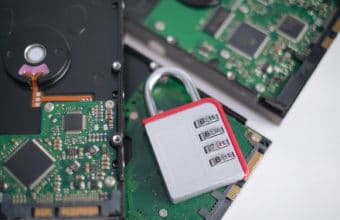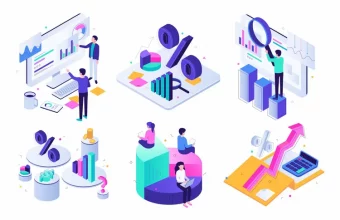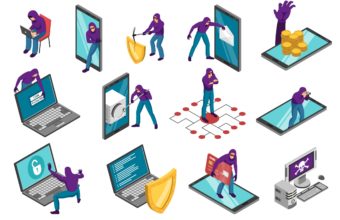Data Security
-
Time to Update Your Data Security Policy? 3 Things to Include
Time to Update Your Data Security Policy? 3 Things to Include Cyberattacks are increasing in a highly-connected world. As more businesses rely on the internet to do business, ensuring an up-to-date data security policy will help prevent your company from becoming a victim of cybercrime. Updating your data security policy should address several crucial steps: […]
read more -
From Point A to Point B: How to Safely Transport Your IT Equipment
From Point A to Point B: How to Safely Transport Your IT Equipment Companies go to great lengths to keep their IT equipment safe. A healthy IT infrastructure is essential for storing and securing vital data. However, sometimes an organization might need to move its IT equipment to another site. When this happens, it’s important […]
read more -
4 Tips to Help Prevent Data Loss
4 Tips to Help Prevent Data Loss For businesses that rely on data, failures can mean catastrophic losses that interrupt operations and increase costs. Whether from neglect or carelessness, data loss means valuable information is at risk. Destruction, deletion, or theft of important user, financial, and operational records can leave businesses with little recourse. Rather […]
read more -
3 Things to Know About Your End-of-Life (EOL) Equipment
3 Things to Know About Your End-of-Life (EOL) Equipment When computer equipment reaches its end of life (EOL), it’s important to keep in mind the impact that it will have on your organization. EOL equipment typically means outdated and unreliable hardware, and potentially compromised data, which brings in security risks and costs. Those seeking to […]
read more -
The Basics of Data Storage and How it Works
The Basics of Data Storage and How it Works One thing is clear about the future of technology—data is king. From user experience to marketing, every business analyzes data, then expertly applies it to improve their practices and increase their profits. New devices, platforms, and software debut every day. A tremendous amount of data is […]
read more -
NIST Compliance: Upholding Security Best Practices in Your Organization
NIST Compliance: Upholding Security Best Practices in Your Organization The National Institute of Standard and Technology (NIST) is a division in the U.S. Dept. of Commerce. Its main purpose is to define, regulate, and enforce standards in relation to technology. Security is one of NIST’s main objectives, so compliance with its standards is extremely important. […]
read more -
What’s Considered to Be “Unsecured” PHI?
Organizations that handle protected health information (PHI), also referred to as personal health information, have specific requirements under the Health Insurance Portability and Accountability Act of 1996 (HIPAA). One is to report “unsecured” PHI breaches to both the affected patients and the U.S. Department of Health & Human Services. Failure to do so can lead […]
read more -
Protecting Your Data with a DRA: Safeguarding What Matters Most
In today’s digital landscape, the value of your data cannot be overstated. It’s a magnet for scammers and thieves who are constantly on the lookout for vulnerabilities to exploit. The question isn’t whether your data is at risk – it’s about how effectively you’ve fortified your defenses. Now is the time to assess the level […]
read more -
Working from Home: 5 Data Policies to Implement
Many businesses have implemented procedures to allow employees to work from home over the past few years. While this has been beneficial in keeping companies operating, it has also created an entirely new problem regarding cybersecurity. Not every company was as rigorous as it should have been regarding securing their employees’ remote workstations. The international […]
read more














